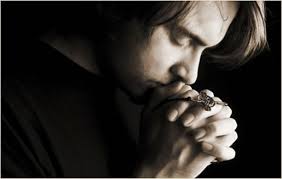In comments following a recent post, many of you saw addiction and religion as different versions of a similar enslavement. Then last post we talked about the terrifying loss of meaning at the finish line. But today I want to show that these parallel prisons arise from the same fundamental longing — one that’s almost noble in character.
In your comments, many of you wrote that religion, like addiction, can be viewed as an extreme form of attachment, with all the bells and whistles: the narrowing of attention and emotion to a small range of rewards, rigid adherence to methods for getting more of what you need and rejecting anything that gets in the way, blind commitment to something that satisfies your needs, at least in part, and attempting to put all your needs into that basket and neglecting whatever doesn’t fit.
And then we got to the fear of meaninglessness that confronts the addict contemplating abstinence.
Well it seems that this implosion of meaninglessness is just as terrifying for a deeply religious person who no longer can believe in his/her religion (e.g., in God) as it is for the addict staring into a life of total abstinence. James Joyce and Graham Greene wrote fine novels about the malignant anxiety facing  priests who could no longer believe. And about their nihilistic attempts to keep going through the motions, living off the remains of a dying addiction to God.
priests who could no longer believe. And about their nihilistic attempts to keep going through the motions, living off the remains of a dying addiction to God.
For both the believer and the addict, that loss of meaning is terrifying. It’s a loss of everything that filled one’s thoughts, dreams, and hopes. In fact, I’d say it’s much more about loss than it is about meaning per se.
So what is it that we so greatly fear losing?
There’s a flip side to this ungainly partnership of religion and addiction. What we want so badly, and what both religion and addiction appear to offer, is a sense of connection that binds our lonely little selves to something else, something bigger, something that offers certainty in a world that is beyond control. This longing for connection and “ongoingness” is pretty fundamental. So much so that it embeds itself in the neural circuits responsible for desire and goal-pursuit — yes, the infamous striatum (including the nucleus accumbens) that I’ve referred to so often. We wish, and we seek, and we crave, and we long for that thing we seem to be missing, because our brains are made for seeking what we don’t have.
In the talk he’s preparing for the Dalai Lama, Kent Berridge emphasizes something very important about the brain. The neural machinery of desire is this rather extensive network of brain matter — literally, it includes a large area in the middle of the brain, and its tentacles reach into the brain stem, the amygdala, and the prefrontal cortex — that’s a lot of territory. Whereas the neural machinery of pleasure is this little hunk of tissue about a square centimeter in size (e.g., a part of the ventral pallidum). In other words, desire is much more important than pleasure, when measured in terms of neural real estate. That’s how central it must be to our survival as a species. (And so, no, I wouldn’t call it “The Beast,” in the parlance of Rational Recovery.)
So it goes. We are built for wishing, for wanting, for craving. And the fact that what we sometimes crave is a sense of connection is why so many of us turn to religion, or addiction, or both. But the wish itself is not an evil thing. It’s a very human thing. It even seems noble, or courageous. It expresses a need we know intimately in ourselves and that brings out our compassion for the vulnerability we see in others.
We can respect the religious person, and we can respect the addict, not for the way they live their lives, but for appropriating the machinery of desire for the pursuit of connection. Not money, not power, not even pleasure — the paltry goals of everyday life — but something very special.
No one expresses that longing better than Eddie Vedder in this song. (Warning: you probably have to be extremely weird to like this song as much as I do). Here’s the first verse:
And I wished for so long… cannot stay.
All the precious moments… cannot stay.
It’s not like wings have fallen… cannot stay.
But I feel something’s missing… cannot say.

Leave a Reply to Marc Cancel reply